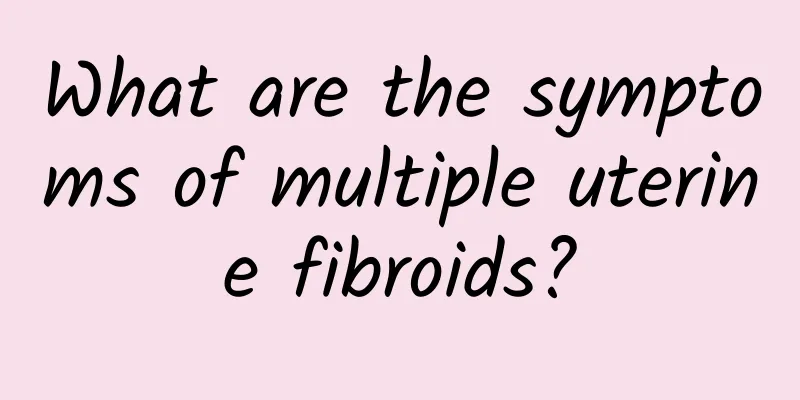12 kinds of fruits you must eat after miscarriage

|
Eating the right fruits can help your body recover after a miscarriage. Here are 12 recommended fruits and their benefits. 1. Apple: Apple is rich in fiber and vitamin C, which helps to enhance immunity and promote digestion. After miscarriage, the body needs a lot of nutrients to recover, and apples are a good choice. 2. Bananas: Bananas are rich in potassium and vitamin B6, which can help relieve fatigue and regulate mood. After a miscarriage, mood swings are greater, and bananas can provide necessary nutritional support. 3. Oranges: Oranges are rich in vitamin C and antioxidants, which help improve immunity and promote wound healing. After miscarriage, the body's immunity is low, and oranges can help. 4. Strawberries: Strawberries are rich in vitamin C and folic acid, which can promote blood circulation and improve immunity. After miscarriage, supplementing folic acid can help the body recover quickly. 5. Grapes: Grapes are rich in iron and antioxidants, which help replenish blood and fight fatigue. After miscarriage, the body loses a lot of blood, and grapes can help replenish iron. 6. Blueberries: Blueberries are rich in antioxidants and vitamin K, which help fight inflammation and promote blood clotting. After miscarriage, blueberries can help reduce the body's inflammatory response. 7. Papaya: Papaya is rich in vitamin C and enzymes, which help digestion and enhance immunity. After miscarriage, the digestive system may be more fragile, and papaya can provide necessary help. 8. Kiwi: Kiwi is rich in vitamin C and fiber, which helps improve immunity and promote digestion. After miscarriage, the body needs a lot of vitamin C to recover, and kiwi is a good choice. 9. Pomegranate: Pomegranate is rich in antioxidants and vitamin C, which helps improve immunity and promote blood circulation. After miscarriage, pomegranate can help the body recover quickly. 10. Mango: Mango is rich in vitamins A and C, which help improve immunity and promote skin repair. After miscarriage, the skin may be more fragile, and mango can provide necessary nutritional support. 11. Pears: Pears are rich in fiber and vitamin C, which helps promote digestion and improve immunity. After a miscarriage, the digestive system may be more fragile, and pears can help. 12. Lemon: Lemon is rich in vitamin C and antioxidants, which help improve immunity and promote wound healing. After miscarriage, the body needs a lot of vitamin C to recover, and lemon is a good choice. Eating the right fruits not only provides necessary nutrients, but also helps the body recover faster. After miscarriage, choosing these fruits can provide the body with a variety of essential vitamins and minerals, helping you recover as soon as possible. |
<<: How to judge early pregnancy miscarriage
>>: Several vegetables that can easily cause miscarriage
Recommend
What are the causes of external itching?
Vulvar pruritus is a common vulvar disease in wom...
The impact of estrogen on perimenopausal women's health
The recent impact of estrogen on women's heal...
The specific cause of cervical erosion
Among gynecological diseases, cervical erosion is...
What are the causes of ovarian cysts? Can you briefly introduce them?
What are the common causes of ovarian cysts? Many...
What are the causes of miscarriage? Pay attention to these 4 factors
The causes of fetal miscarriage may first be feta...
Vaginal irregularities should alert you to ectopic pregnancy
Women who suffer from ectopic pregnancy should ha...
What kind of health products can patients with uterine fibroids take? Can patients with uterine fibroids take health care medicines?
Uterine fibroids are a common gynecological disea...
Self-examination before abortion is very important
Generally, the time to choose abortion should be ...
How to prevent cervicitis
Cervicitis is one of the common gynecological dis...
Understanding the symptoms of unclean abortion will help with timely examination and treatment
Spontaneous abortion is common, but there may be ...
What are the symptoms of endometriosis
Endometriosis is a female reproductive system dis...
What are the methods for treating cervical hypertrophy according to experts?
Patients with cervical hypertrophy all know that ...
Symptoms of menopause
Menopause is the time when female patients experi...
You can eat sugar without any burden! Nutritionist Zheng Shijia: These sweet fruits and vegetables can replace white sugar, and you can cook them to reduce sugar like this
People who love to eat sugar are worried that it ...
What kind of examinations are needed after laparoscopic surgery for uterine fibroids?
Follow-up after laparoscopic surgery for uterine ...









